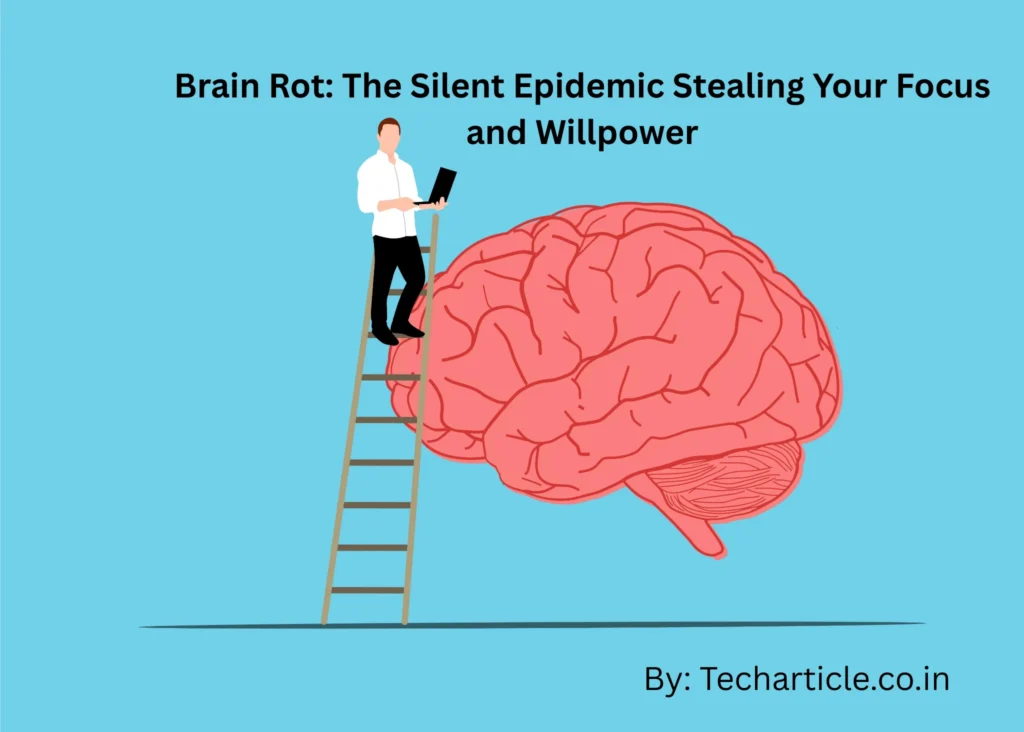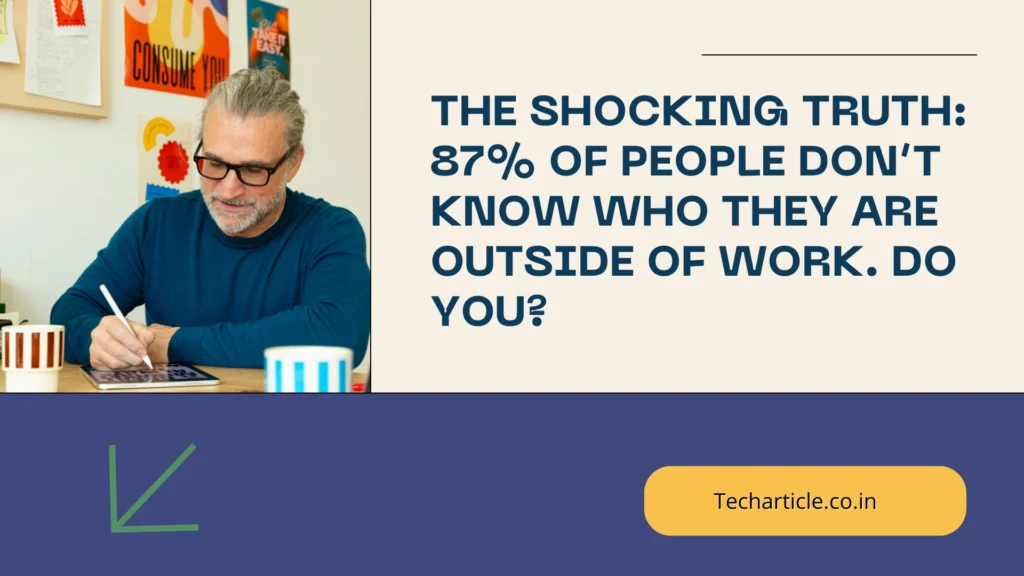The Day I Realized My Brain Was Melting (And Yours Might Be Too)

It was 2:17 AM when I finally looked up from my phone. My neck ached, my eyes burned, and I had just spent the last three hours and forty-two minutes watching TikTok duets, Instagram Reels, and YouTube shorts about—wait, what was I even watching?
Ever thought why all these social media platforms are readily available 24/7 for free? Do they cost you anything? Think about this.
That’s when the terrifying realization hit me: my brain was rotting in real time. Not in a dramatic, sci-fi horror way, but in that slow, creeping decay.
Ever realised you can’t remember the last book you finished, or what you ate for breakfast? You feel like you lose your train of thought mid-sentence, and your attention span feels shorter than a Vine clip.
Sound familiar? You’re not alone.
It looks like we are on the same page. We need to get rid of this page as soon as possible before anything major happens.
A 2024 study from the University of California found that heavy social media users experience memory recall 23% worse than moderate users. Another 2023 report from Stanford revealed that constant task-switching (what we mistakenly call “multitasking”) shrinks the brain’s grey matter over time. Yikes.
What Exactly Is Brain Rot? (And Why It’s Worse Than You Think)
“Brain rot” isn’t just a funny internet term—it’s a real, measurable decline in cognitive function caused by our modern digital habits. Think of it like mental junk food:
- Your focus? Scattered like a squirrel in traffic.
- Your willpower? It’s weaker than your resolve to skip dessert.
- Your memory? Full of random TikTok sounds, but you can’t recall what you ate for breakfast.
The scary part? It’s happening to all of us. A 2024 survey by Pew Research found that 58% of adults under 35 report noticeable declines in concentration over the past five years. And it’s not just young people—Gen X and Boomers are also experiencing digital cognitive decline in different ways (endless news cycles, email overload, etc.).
If you notice, you’ll find out that children in your house (if any) cry for mobile phones or iPads to watch cartoons, and they even threaten you that they will not finish their food if they aren’t allowed access to mobile devices. Can you relate to this? No worries if you haven’t reached this feat.
The Science Behind Brain Rot (Spoiler: It’s Worse Than We Thought)
Our brains evolved over millennia to focus on one important thing at a time—like hunting food or avoiding predators. But today? We’re bombarded with more information before breakfast than our ancestors processed in a month.
Here’s what the latest research says:
- Attention spans have dropped to just 6.8 seconds in 2024 (down from 8 seconds in 2020) due to ultra-short-form content (Instagram, TikTok, YouTube Shorts, etc.). (Source: Microsoft 2024 Attention Study)
- Heavy smartphone use physically changes brain structure, reducing grey matter in areas linked to focus and emotional regulation. (Source: Journal of Behavioural Addictions, 2023)
- The average person checks their phone 144 times a day, with Gen Z hitting 220+ daily pickups. (Source: Deloitte Digital Consumer Trends 2024)
How Brain Rot Sneaks Up On You (Like a Silent App Update)
It doesn’t happen overnight. Instead, it’s death by a thousand scrolls:
1. The Infinite Scroll Trap (And Why You Can’t Stop)
You open Instagram for “just a quick check.” Suddenly, it’s 45 minutes later, and you’ve fallen into a vortex of algorithmically optimized distraction.
Why it’s toxic:
- Every like/comment triggers a dopamine hit, rewiring your brain to crave more.
- Short-form video reduces patience for long-form content (hence why reading feels like a chore now).
- Passive consumption replaces active thinking—your brain becomes a lazy spectator.
2. The Multitasking Myth (You’re Not Actually Good At It)
Do you also think like this:
“Listening to a podcast while working while texting? I’m a productivity king!” Nope.
Reality check:
- Task-switching burns 20% more mental energy than focused work. (Source: American Psychological Association, 2024)
- It takes 23 minutes on average to refocus after an interruption.
- Chronic multitaskers perform worse on memory tests than those who single-task.
3. Information Overload (Your Brain’s Breaking Point)
We now consume the equivalent of 174 newspapers’ worth of data daily—6x more than in the 1980s. (Source: UC San Diego 2023 Study)
Result?
- Decision fatigue (Why can’t I pick a Netflix show?)
- Mental clutter (Where did I put my keys? Wait, what was I saying?)
- Constant low-grade stress (Why am I always tired but wired?)
Signs You Might Have Brain Rot (A Self-Check)
Ask yourself:
✔ Do you instantly reach for your phone when alone for 10 seconds? (Elevator? Bathroom? Walking?)
✔ Do you read headlines but rarely finish articles? (Guilty.)
✔ Does reading a book feel like running a mental marathon?
✔ Do you forget why you opened your fridge 3x a day?
If you answered yes to 2+, your brain is in digital decay mode.
You can also watch this video to understand this term deeply, how it’s influencing you, and what you can do to avoid it as much as possible.
How You Can Reverse Brain Rot (Before You Turn Into a Goldfish)
The good news? Your brain is neuroplastic, meaning it can heal. Here’s your detox plan:
1. Digital Fasting (No, You Won’t Die)
- Delete social media for 7 days. (I did—my focus came roaring back.)
- Turn off ALL non-essential notifications. Your brain isn’t a 24/7 help desk.
- Use grayscale mode to make screens less addictive (works shockingly well). There are a few apps also available on the Play Store or the App Store that serve this purpose primarily.
2. Rebuild Your Focus Muscle
- Read actual books. Start with 15 pages daily (paper > screens).
- Practice “deep work”: 90-minute distraction-free blocks. Silence your phone.
- Try the “5 More Rule”: When you want to quit a task, do 5 more minutes.
3. Sleep Like Your Brain Depends On It (It Does)
- No screens 90 mins before bed. Blue light murders sleep quality. (That’s not any fluff)
- Keep a consistent sleep schedule—even on weekends.
- Nap strategically. 20 minutes = mental reset. 60+ minutes = grogginess
Final Thought: Your Brain Is Precious—Protect It at Any Cost
Brain rot isn’t about intelligence—it’s about unintentional self-sabotage in the attention economy. The modern world is designed to hijack your focus, but you can fight back.
Start small:
- Leave your phone in another room during meals.
- Print out long articles to read offline.
- Schedule “focus hours” where you work like it’s 1995 (no internet distractions).
Your future self will thank you if you follow a few basic steps.
Now, be honest—when was the last time you went 3 hours without checking your phone? Let that sink in.
Bonus: You can check the number of hours you used your phone today and the last few days. Ask me how?
Just go to the settings of your mobile device and look for “Digital Wellbeing and Parental Control”, and then press here and there, you’ll get your usage history.
If it’s more than 4 to 5 hours, that’s a serious concern. Look for ways you really avoid using your device and cut out a few non-essential tasks.


